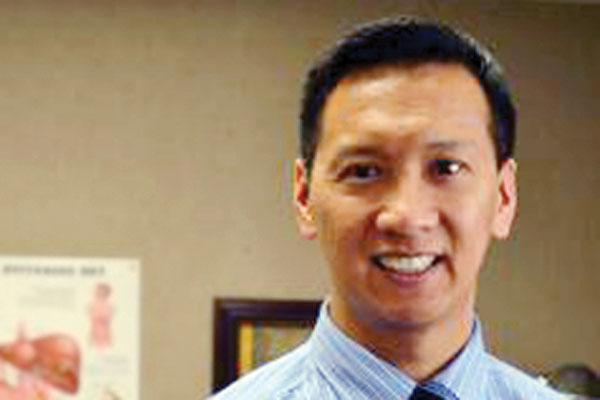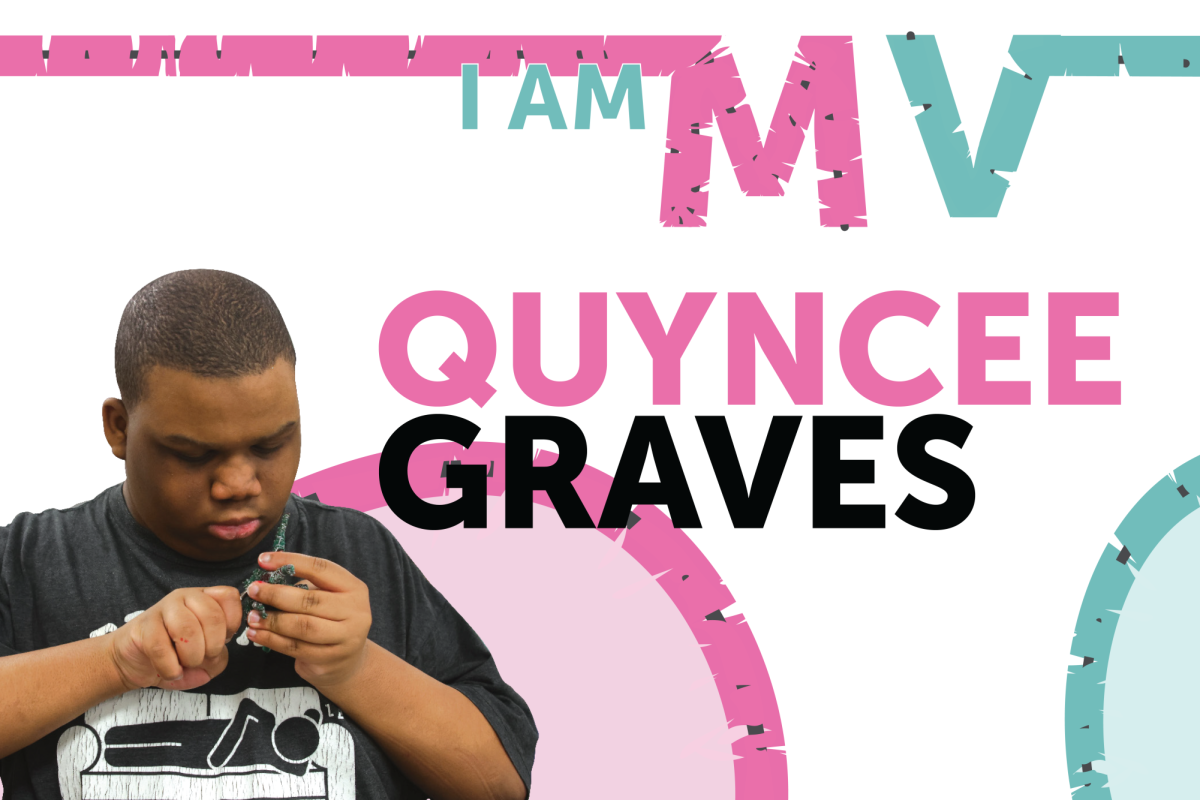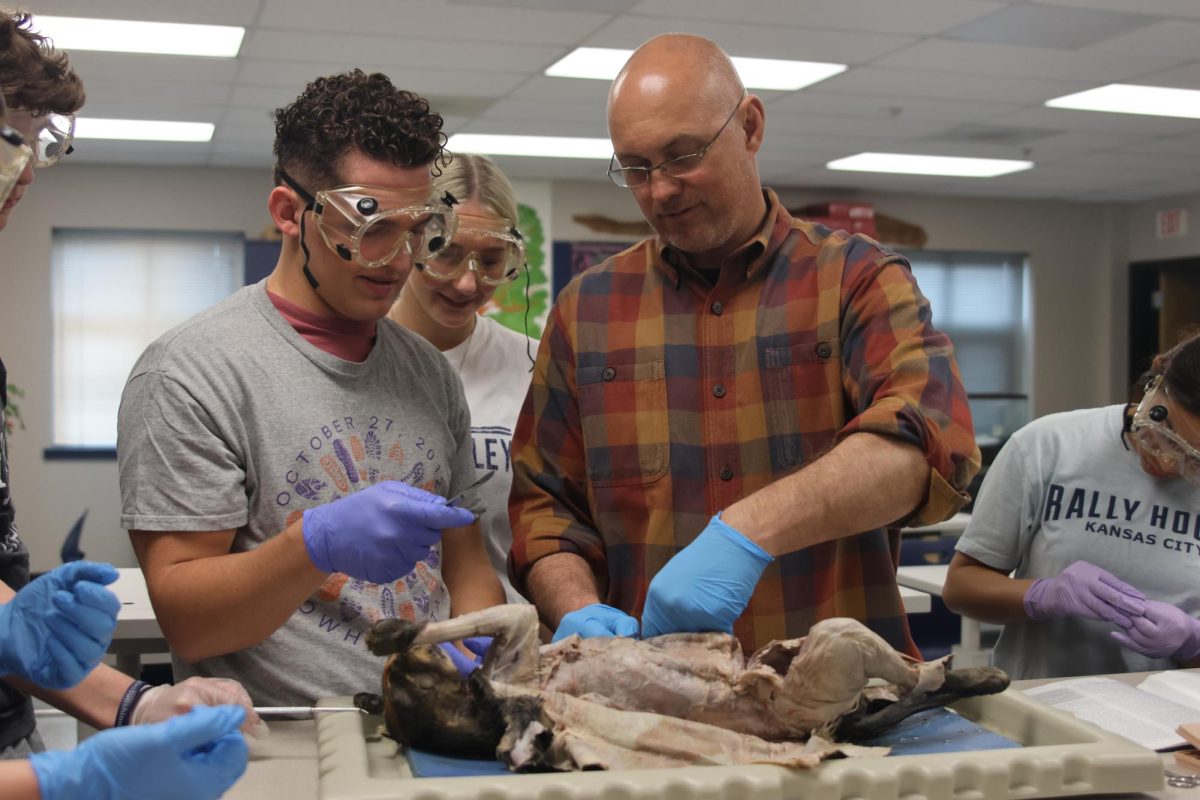[Breast cancer surviver and senior Cody Moore’s mother] Candi Moore said she received great support from you and Shawnee Mission Hospital. How do you think that helps people?
It’s everything. We’re always talking about the rest of the team. The patients are always happy to hear what doctors and other women have to say. I’m so grateful for them. They do a great job. Women’s care helps with wigs and bras and women don’t want to talk to me about that.
What are the physical effects from breast cancer?
First instinct is, it doesn’t hurt. They number one thing people suffer from is diagnosis. Once they are diagnosed they are worn out and scared. The good thing is we’re catching things really early, before you can even feel them. The most physical effect from treatment is discomfort.
What are the emotional and/or physical effects on a patient with breast cancer?
The biggest thing is no one can sleep. You’re stressed out, irritable but mostly just scared. It’s remarkable how well people do when they bring their family. I love when they bring people with them actually.
What are some early signs of breast cancer that you can tell on your own?
The best thing you can do is go to your recommended mammograms. You can’t determine much by a self exam although we encourage people to check themselves. People tend to have a strong sense to ignore stuff.
How can you detect it before it progresses?
Screening mammograms are the best you can do. Doctors can inject a blue dye into your skin to see if the cancer has gone to your lymph nodes.
How extreme are some of the cases you have dealt with?
Certain circumstances occur where the cancer has widely progressed in bones and lungs. There was one case where the cancer was so large it eroded through the skin. The smell is horrible and it takes a lot to manage the drainage. In terms of extreme, it’s bad news. It’s sad.
When patients are diagnosed, is there a way to prevent it from growing or slow down the progression?
No. The number one thing is moving through the process and getting the appropriate operation. Whether is chemotherapy, surgery, radiation or any combination of the treatments.
Is there a way people can tell the odds of getting breast cancer?
There is a website on the internet (gailmodel). Talk to your physician. If your family has a history of it, your chances have increased. Also if you have a personal history of breast problems, the odds have increased.
What first step do patients take after diagnosis? (Surgery, chemo, radiation)
First, we council them with big picture thoughts, instead of detail. We encourage them to talk to their loved ones and have councils with other physicians.
Are they any myths known to prevent getting breast cancer?
I love that question. I don’t think anyone comes in here with misinformation. Suzanne Summers has a book about stuff like that; no eating well does not help.
What is the most extreme case of breast cancer you know of/seen?
I very distinctly see a picture of a woman my wife brought to me in the Philippines on my mission trip. Her whole breast was rotted away and it went into her chest and bone. It was sad because I couldn’t do anything but give her medicine.
How do the patients you have affect you personally?
If they cry and Ashlee (medical assistant) cries, then I crack. I intentionally have to have distance. A lot of doctors are huggy, I’m not. We have some really sad cases sometimes. I always look at the husband, especially when it’s a young patient because they have that look in their eyes that, “you better help, because I’m scared.”
How many breast cancer operations do you do annually?
We get breast diseases every clinic. That could be a range from irregular mammograms to a lump or bump felt from a self check. Out of how many patients we have about 10 percent usually turn into caner. That goes along with the last question; we have so many patients it’s hard to get emotionally attached.
Advice for people diagnosed with breast cancer:
Write everything down, bring someone with you to appointments, go one step at a time; the people that do that usually do better. People that have pen and paper every time, they do better. When a doctor tells you what to do; you legitimately don’t listen. You need a second pair of ears.
Advice for family’s going through this with patients:
This probably isn’t the best advice but I tell them to pace themselves. A lot of them don’t sleep and that doesn’t help. I encourage them and give them props when they are taking care of people. I always recognize the caregiver. It’s important as a physician to do that. Very often before operations, they have a moment. It’s different for everyone. They stop for a second and someone says a prayer. I think that’s great and makes a difference. I’ve seen that many times. It’s funny because sometimes they’ll pray with me or I just walk right in. One time they prayed over my hands. I think it’s great. The surgery center really makes room for that and appreciates it. It’s truly great. Some people compensate using humor but it doesn’t really work.









